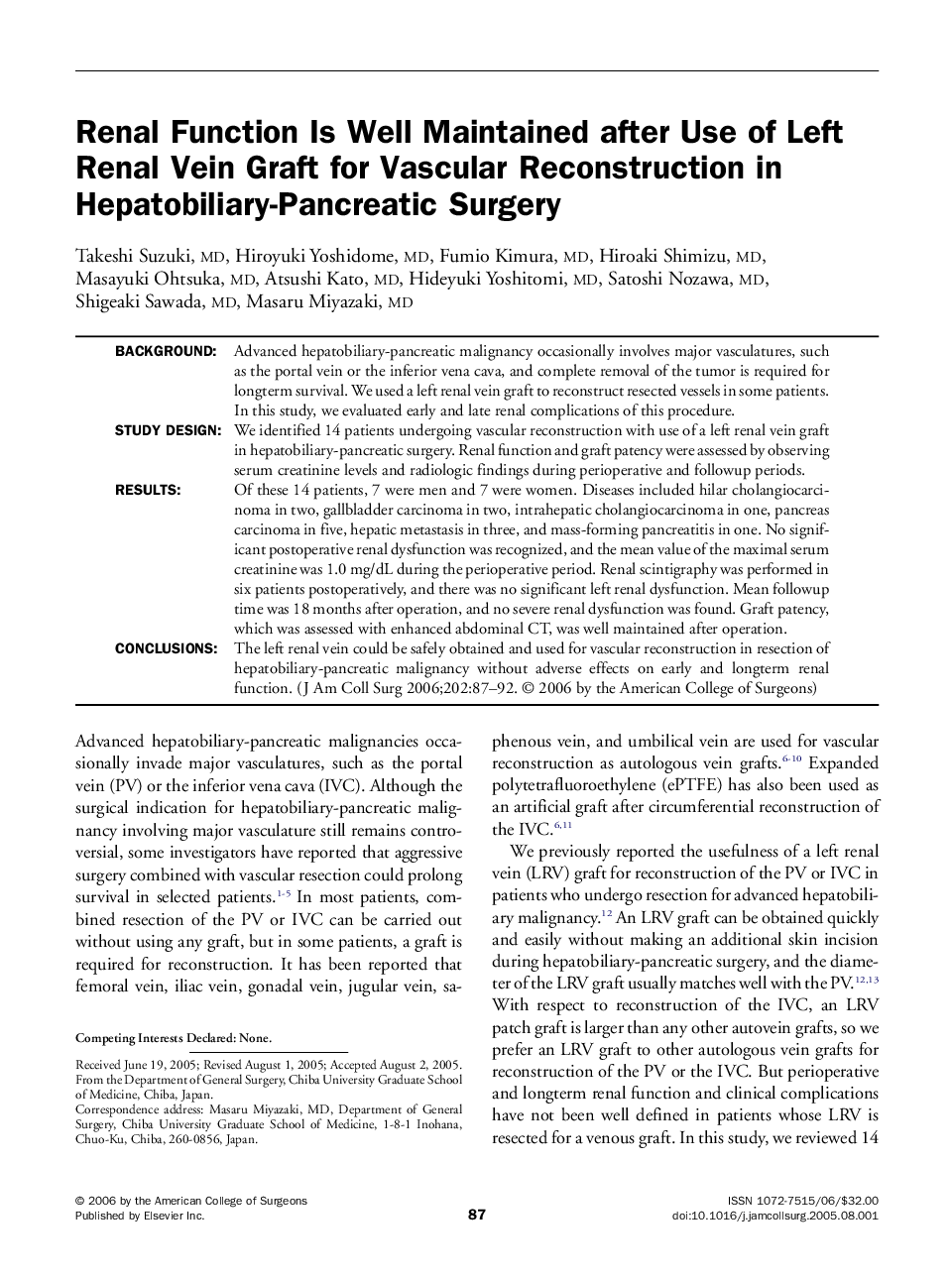| Article ID | Journal | Published Year | Pages | File Type |
|---|---|---|---|---|
| 4294680 | Journal of the American College of Surgeons | 2006 | 6 Pages |
BackgroundAdvanced hepatobiliary-pancreatic malignancy occasionally involves major vasculatures, such as the portal vein or the inferior vena cava, and complete removal of the tumor is required for longterm survival. We used a left renal vein graft to reconstruct resected vessels in some patients. In this study, we evaluated early and late renal complications of this procedure.Study designWe identified 14 patients undergoing vascular reconstruction with use of a left renal vein graft in hepatobiliary-pancreatic surgery. Renal function and graft patency were assessed by observing serum creatinine levels and radiologic findings during perioperative and followup periods.ResultsOf these 14 patients, 7 were men and 7 were women. Diseases included hilar cholangiocarcinoma in two, gallbladder carcinoma in two, intrahepatic cholangiocarcinoma in one, pancreas carcinoma in five, hepatic metastasis in three, and mass-forming pancreatitis in one. No significant postoperative renal dysfunction was recognized, and the mean value of the maximal serum creatinine was 1.0 mg/dL during the perioperative period. Renal scintigraphy was performed in six patients postoperatively, and there was no significant left renal dysfunction. Mean followup time was 18months after operation, and no severe renal dysfunction was found. Graft patency, which was assessed with enhanced abdominal CT, was well maintained after operation.ConclusionsThe left renal vein could be safely obtained and used for vascular reconstruction in resection of hepatobiliary-pancreatic malignancy without adverse effects on early and longterm renal function.
